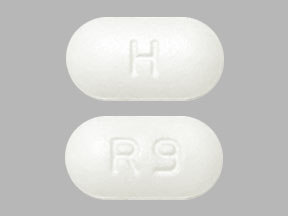
What is Ritonavir?
Ritonavir is an antiviral medication that works to prevent the human immunodeficiency virus (HIV) from spreading in your body. Ritonavir, along with other antiviral medications, is used to treat HIV. This virus can lead to acquired immune deficiency syndrome. Ritonavir does not cure HIV or AIDS. Ritonavir can be used in other ways not mentioned in the medication guide.
Side effects of Ritonavir
If you experience symptoms of an allergy (hives or skin sores), a skin reaction that is severe (burning eyes, fever, skin pain or blistering, or red, purple, or blue skin with peeling or blistering), or both, seek emergency medical attention.
Ritonavir may cause serious side effects. If you experience:
- You may feel lightheaded or have irregular heartbeats.
- Easy bruising or bleeding; purple or red spots on your skin, especially in the nose, mouth, or vaginal area;
- Signs of kidney stones: pain in the side or lowerback; blood in urine; difficult or painful urination.
- High blood sugar—increased thirst and urination; dry mouth or fruity breath smell
- Signs that you may have liver or pancreas issues include: loss of appetite, stomach pains (which can spread up to the back), vomiting, and Dark urine is also a sign.
Ritonavir can affect your immune system and cause side effects. This may occur weeks or even months after taking ritonavir. You should tell your doctor about:
- Signs of an infection: fever, sweats at night, swelling glands, sores on the lips, coughing, wheezing, and diarrhea;
- If you have difficulty speaking, swallowing, or moving your eyes, or are weak or prickly, then it could be because of:
- Impotence, menstrual change
Some of the common side effects that ritonavir can cause include:
- Nausea, vomiting, stomach pain, diarrhea;
- Numbness in the hands, feet, or mouth
- Feeling tired or weak
- Rash;
- Changes in body fat distribution (especially on your legs, arms, chest, shoulders, breasts, and neck)
There may be other side effects.Call your physician if experiencing side effects; also report these by calling the FDA's hotline: 1-800-FDA-1088.
Warnings
Inform your doctor of all the other medications you are taking. Certain drugs shouldn't be taken with ritonavir.
Before you take this drug
Certain drugs shouldn't be taken with ritonavir. If you use the following medications, your treatment plan could change:
- Alfuzosin, apalutamide, cisapride, colchicine, St. John's wort, and voriconazole
- Use of Revatio to treat PAH
- Antipsychotic medicine—lurasidone, pimozide;
- Cholesterol-lowering medicine—lovastatin, simvastatin, lomitapide;
- Ergot medicine—dihydroergotamine, ergotamine, methylergonovine;
- Heart medicine: Amiodarone, Dronedarone, Flecainide, Propafenone, Quinidine or Ranolazine may all help.
- A sedative—oral midazolam or triazolam.
If you've ever:
- Liver diseases, especially hepatitis A and C;
- Heart problems
- Diabetes
- A bleeding disorder, such as hemophilia.
Ritonavir liquid is a liquid that contains propylene glycol and alcohol. It should not be taken by women who are pregnant or have premature babies. Use all medications to treat your HIV infection while pregnant. You may have your name listed in an antiviral registry. Ritonavir may reduce the effectiveness of skin patches or birth control pills. Your doctor can provide you with other contraceptive methods, such as a condom or diaphragm. Breastfeeding is not recommended for women with HIV. Breast milk can transmit the virus to your child.
How to take Ritonavir?
Ritonavir should only be taken alongside other antiviral medicines prescribed to you, reading all instructions and following directions given with your prescription. Your physician may adjust its dose; in such instances it's imperative that you adhere to their orders precisely and take your medicine in accordance with what was instructed to you. Add to meals Please read and adhere to all instructions for use. Should you have any concerns, do not hesitate to consult either your pharmacist or doctor. Do not chew or crush the tablets. The oral solution is liquid. Shake it. Use the syringe provided or an appropriate dose-measuring device to measure a dosage (not your kitchen spoon). When giving ritonavir to a baby, follow your doctor's instructions carefully. Children's doses are determined by the surface area of their bodies (height, weight). If the child gains or grows in weight, then it is possible that the dose will change. All HIV medication should be taken as prescribed. You should not stop taking medication or change the dose without consulting your doctor. Continue to be under a doctor's care. Medical tests will be required frequently.
You may get hepatitis C or B again. While taking ritonavir, you may require liver function testing for up to several months. Keep the tablet, fluid, or powder away from moisture or heat. Refrigerate not. When not in use, keep it tightly closed. Keep the capsules away from heat, moisture, and sunlight. Store the capsules at room temperature for up to 30 days.
What happens if I miss the dose?
If you are almost due for the next dose, skip the missed one.Take only one dose at any one time. Do not double up on dosage. Refill your prescription before it runs out.
What happens if I overdose?
Call the Poison Help Line at 1-800-222-1222 or seek emergency medical care. A child could die from an overdose of oral liquid ritonavir.
What should be avoided?
It is possible to experience unpleasant side effects if you drink alcohol or take disulfiram( antabuse) while taking capsules and liquids. Ritonavir does not stop the spread of your illness. Share razors and toothbrushes. Consult your doctor about how you can prevent HIV from being transmitted during sexual contact. It is not safe to share syringes or needles for drugs.
Interaction with other drug
It is sometimes not safe to take certain medications at the same time. It is possible that some drugs may affect the blood level of another drug you are taking, causing side effects to increase or making it less effective. Some drugs are not to be taken together with ritonavir. Inform your doctor of all the medicines that you take. Included are prescription, over-the-counter, and herbal medicines. This list does not include all interactions.




